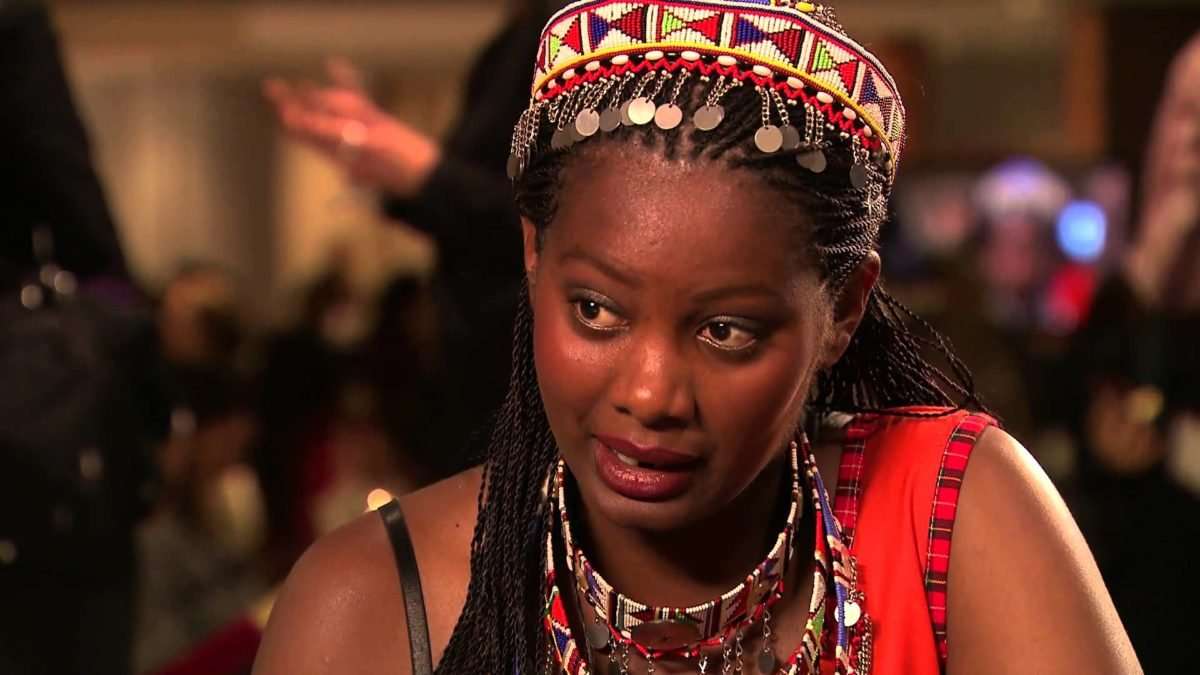Nice Nailantei Leng’ete was recently named one of Time’s Most Influential People, and for good reason. The 27-year-old Kenyan has made it her life’s work to help young African girls escape “female cutting,” commonly referred to as female genital mutilation (FGM). While discussing her mission with Yahoo Lifestyle, Leng’ete explained the cause is close to her heart because she escaped the archaic practice herself at 8 years old.
“I escaped by running away,” Leng’ete shared, saying she and her sister hid in a tree until the ceremony was over. And she has now helped over 15,000 others avoid FGM as well.
Leng’ete is also working to rid Africa of child marriage and FGM by 2030, introducing alternative rites of passage to her male-dominated Maasai community.
“FGM, for Maasai, is a rite of passage from girlhood to womanhood. Women are not considered women unless they have gone through FGM,” Leng’ete said, explaining the societal role of female circumcisions. “FGM in my community connects to girls ending their education, with child marriage, and with teenage pregnancies. A girl is 10 or 12 years old when she undergoes FGM. Then she’s told she’s a woman, and that means she’s ready for marriage, and that means she has children. They all go together.”
Leng’ete knew she was destined for more while witnessing the ritual as a child.
“I saw pain. I saw death. Since I was 7 years old, I used to attend these ceremonies in my community with girls undergoing FGM. I saw my friends leave school and get married. And I wanted to continue my education.”
That’s just what she did, becoming the first girl in her village to go to high school. Her school uniform inspired other girls in her community, who later sought her help to avoid “the cut.” While she initially hid those seeking help, this made her a wanted woman in the region, leading her to take a different approach.
The young hero, instead, received permission to share information about sexual health and wellness with her village. After four long years of educating her community, the elders were convinced that Maasai would be more prosperous if women were able to stay in school longer, marry later and forego female circumcisions. Elders officially renounced the practice of FGM in 2014.
“I’m driven by passion,” Leng’ete said. “Being able to protect these younger girls from these harmful practices is what I want to do; it’s an important job. When I see the girls in school, that’s my happiness. I’m hoping to reach many more — every girl — if I’m able.”

bauma409 on July 27th, 2018 at 01:15 UTC »
Provider here just sharing some insight about the US and FGM. When females with FGM deliver babies here in the US, those with higher degrees often need portions of the vaginal opening cut to deliver babies. Here in the US it is actually legal and sometimes returned to it's previous state despite FGM itself being illegal. Canada however, will not suture the vagina back to it's previous state. OB/GYN residencies here in the US (at least in my state) teach it as something that is done because it is culturally sensitive and respectful. I am not stating an opinion one way or another on this right now, just sharing information so people are aware.
Edit: Clarifying residency part
bambambambamdan on July 26th, 2018 at 21:04 UTC »
Imagine saving 15,000 people, extraordinary.
TooShiftyForYou on July 26th, 2018 at 20:53 UTC »
Becoming the first girl in her village to go to high school. Her school uniform inspired other girls in her community, who later sought her help to avoid “the cut.” While she initially hid those seeking help, this made her a wanted woman in the region, leading her to take a different approach.
The young hero, instead, received permission to share information about sexual health and wellness with her village. After four long years of educating her community, the elders were convinced that Maasai would be more prosperous if women were able to stay in school longer, marry later and forego female circumcisions. Elders officially renounced the practice of FGM in 2014.
She directly convinced her entire village to change their rituals and continues going around to other villages to do the same. A very inspirational person.